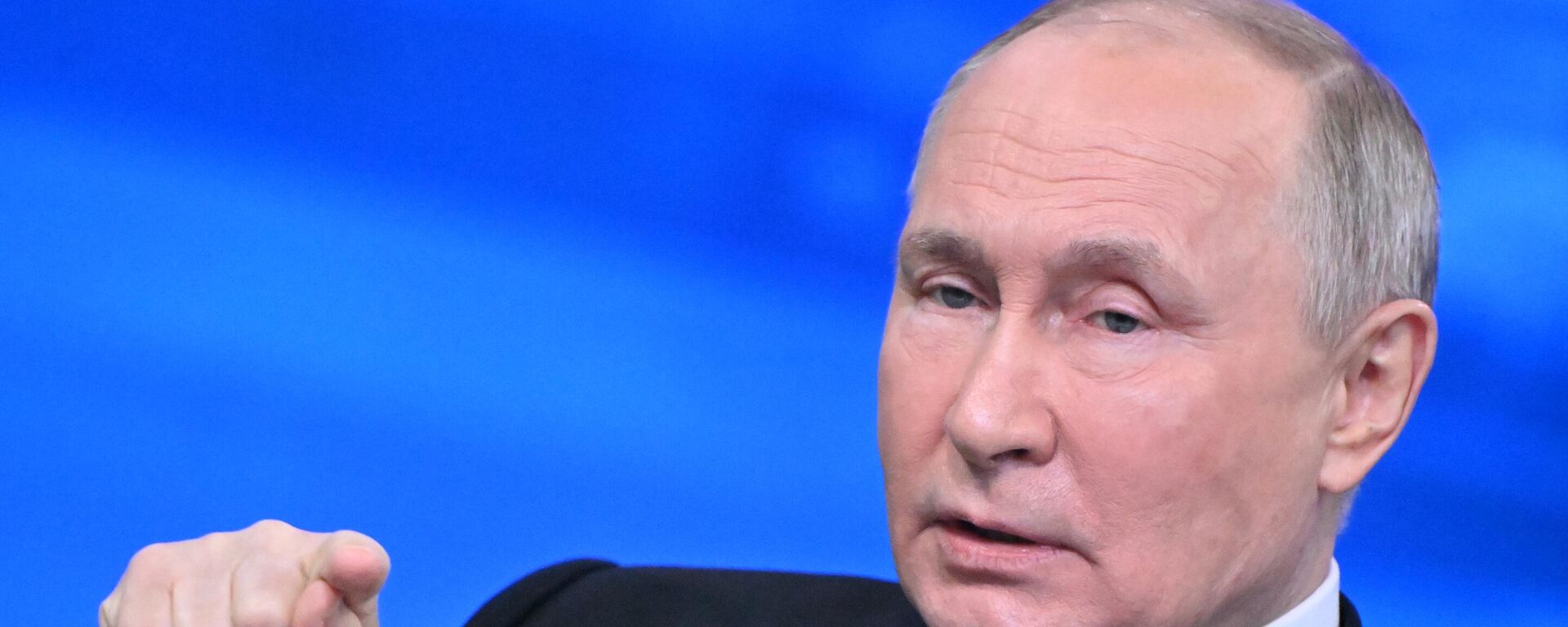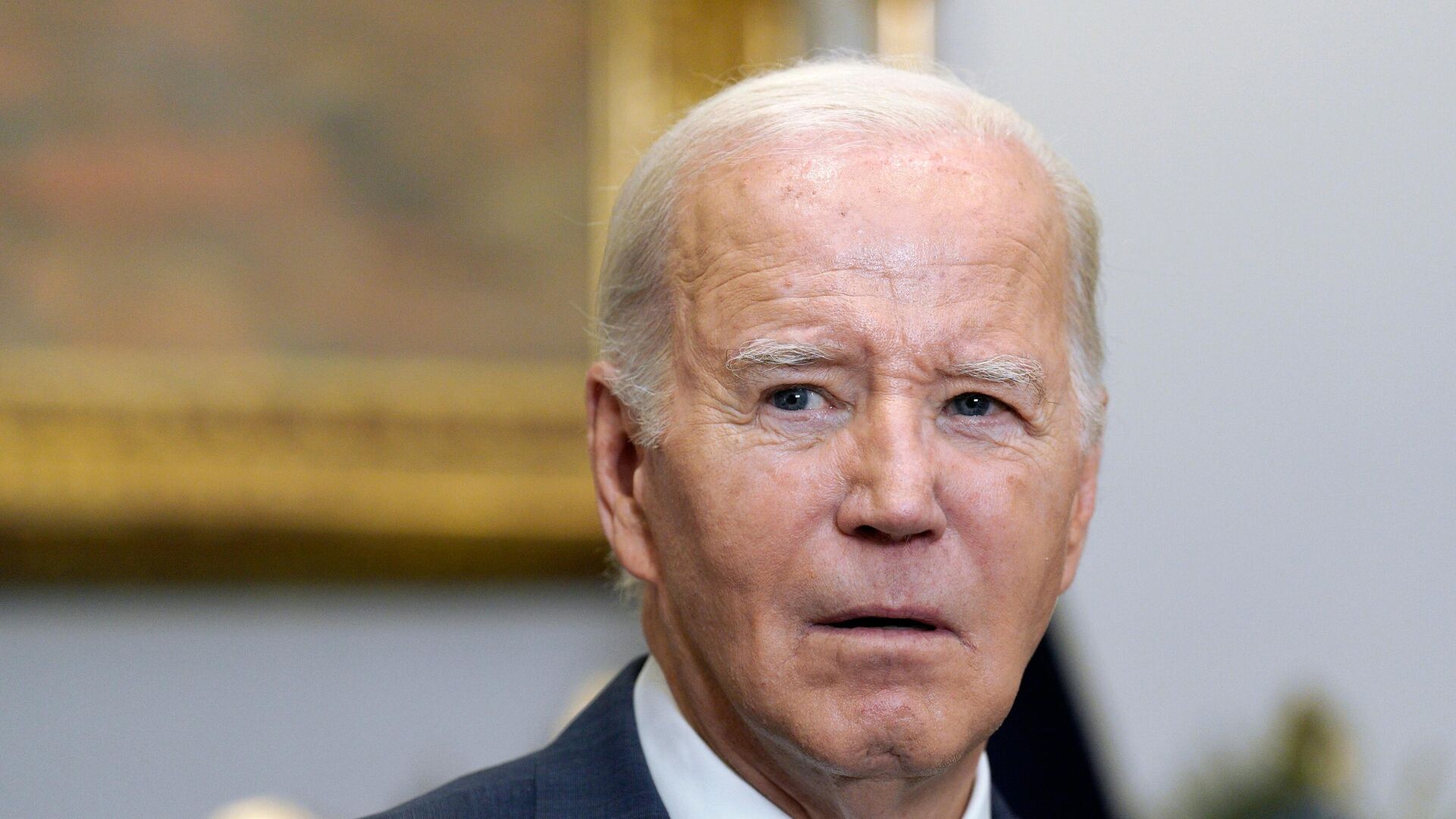https://sputnikglobe.com/20240112/biden-backing-bill-to-seize-russian-assets-bound-to-deepen-dedollarization-1116126197.html
Biden Backing Bill to Seize Russian Assets Bound to Deepen De-Dollarization
Biden Backing Bill to Seize Russian Assets Bound to Deepen De-Dollarization
Sputnik International
The Biden administration has expressed support "in principle" for a proposed law that could enable the US government to seize approximately $300 billion in frozen Russian assets, redirecting them to Ukraine. This move, while aimed at penalizing Russia, raises serious concerns about the integrity and reliability of the US financial system.
2024-01-12T10:14+0000
2024-01-12T10:14+0000
2024-01-12T19:39+0000
us
joe biden
analysis
https://cdn1.img.sputnikglobe.com/img/07e8/01/08/1116061941_0:36:2922:1680_1920x0_80_0_0_a5ddbfbd8ad9ae2f1f9513e68db2d246.jpg
Critics are cautioning that these actions have the potential to erode global trust in the greenback. Consequently, international partners may reconsider their reliance on the dollar, driven by fears of possible future US sanctions.The declaration made by the Biden administration, expressing its support for legislation that permits the seizure of Russian assets, has triggered widespread tremors across the global financial sphere. While the motive behind this is to support Ukraine during the ongoing conflict, this move is teeming with serious risks. Tom Luongo, financial and geopolitical analyst, sheds light on the potential ramifications of this decision. According to Luongo, the act of seizing Russian foreign exchange reserves already cast a shadow of doubt over the principles guiding global trade. The analyst emphasizes that this isn't just a US issue but a broader Western phenomenon. "The European Union, particularly, is at the forefront of this approach," he adds. Luongo also points out that, nearly two years after the initial sanctions, which Russia has largely withstood, the West seems to be escalating its financial warfare."This suggests a deeper motive than just pressuring Russia," he observes.Luongo, in his discussion of the precedent set by this situation, raises concerns about the message it sends to the world: if you defy the West, your assets might be in danger. As a result, there has been a movement away from Western banking systems, known as 'de-dollarization.' Furthermore, Luongo highlights the substantial decrease in the euro's role in global trade in recent years.As for why this issue has surfaced now, Luongo believes it aligns with broader strategic goals, including distancing the US from both Russia and Europe. He sees the bill as a potential catalyst for a shift in global financial dynamics, ultimately undermining the US banking system and changing the landscape of global trade.
https://sputnikglobe.com/20240111/russia-now-europes-number-one-economy-fifth-worldwide-putin-reveals-1116109141.html
Sputnik International
feedback@sputniknews.com
+74956456601
MIA „Rossiya Segodnya“
2024
News
en_EN
Sputnik International
feedback@sputniknews.com
+74956456601
MIA „Rossiya Segodnya“
Sputnik International
feedback@sputniknews.com
+74956456601
MIA „Rossiya Segodnya“
us, joe biden, asset seizure, us joe biden, russian assets, property theft
us, joe biden, asset seizure, us joe biden, russian assets, property theft
Biden Backing Bill to Seize Russian Assets Bound to Deepen De-Dollarization
10:14 GMT 12.01.2024 (Updated: 19:39 GMT 12.01.2024) The White House has indicated its "in principle" support for a bill that would potentially allow the US government to seize around $300 billion in frozen Russian assets and redirect them to Ukraine. While this measure seeks to penalize Russia, it brings up significant concerns surrounding the integrity and reliability of the US financial system.
Critics are cautioning that these actions have the potential to erode global trust in the greenback. Consequently, international partners may reconsider their reliance on the dollar, driven by fears of possible future US sanctions.
The
declaration made by the Biden administration, expressing its support for legislation that permits the seizure of Russian assets, has triggered widespread tremors across the global financial sphere. While the motive behind this is to support Ukraine during the ongoing conflict, this move is teeming with serious risks.
Tom Luongo, financial and geopolitical analyst, sheds light on the potential ramifications of this decision. According to Luongo, the act of seizing Russian foreign exchange reserves already cast a shadow of doubt over the principles guiding global trade.
"It was a clear statement by the West, signifying a deliberate rift between East and West, not a mere reaction," Luongo explains.
The analyst emphasizes that this isn't just a US issue but a broader Western phenomenon.
"The European Union, particularly, is at the forefront of this approach," he adds. Luongo also points out that, nearly two years after the initial sanctions, which Russia has largely withstood, the West seems to be escalating its financial warfare.

11 January 2024, 07:42 GMT
"This suggests a deeper motive than just pressuring Russia," he observes.
Luongo, in his discussion of the precedent set by this situation, raises concerns about the message it sends to the world: if you defy the West, your assets might be in danger. As a result, there has been a movement away from Western banking systems, known as 'de-dollarization.' Furthermore, Luongo highlights the substantial decrease in the euro's role in global trade in recent years.
"The Biden administration's actions are counterproductive to US interests," Luongo asserts, suggesting that these moves align more with the interests of globalist entities, which he refers to as 'Davos.'
As for why this issue has surfaced now, Luongo believes it aligns with broader strategic goals, including distancing the US from both Russia and Europe. He sees the bill as a potential catalyst for a shift in global financial dynamics, ultimately undermining the US banking system and changing the landscape of global trade.



